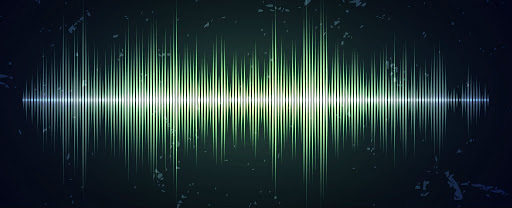
What is Sound
As musicians, our most valuable sense is hearing, and while almost every human listens to the world in many ways, musicians understand sound better than anyone. This does not only affect how good musicians are at listening to music, it helps learning new languages and distinguishing certain sounds from one another, as an expert chef does with food.
Being so important in life, we should try to have a better understanding of what is sound and how is it possible. A world without sound would be very empty and it certainly gives a hard time to people who lose their hearing, but the interesting part is that sound is not just something you hear, it’s something you feel.
Science Says

Sound is produced by vibrations.
Sound is produced when something vibrates. The vibrating body causes the medium (water, air, etc.) around it to vibrate. Vibrations in air are called traveling longitudinal waves, which we can hear. Sound waves consist of areas of high and low pressure called compressions and rarefactions, respectively.
https://method-behind-the-music.com/
What is Sound Really?
One must ask the question “what is sound?” not just to understand how it comes to be and how we are able to perceive it, but to arrive at a conclusion where we might find a clearer understanding of the connection between a person and sound.
What are we listening to? after seeing the cientific explanation one might drop any cartoonish ideas of sound and say “I’m listening to soundwaves” and in a way it is true, but believing that you are listening to something and believing you are listening to something make a sound are two different things when it comes to how you as a human being perceive the world, and it has a bigger impact on musicians, whose talent is to manipulate sound.
Philosophy and science have always had a close relationship, and it is even with Aristotle that sound was being analized to see how it worked.
When speaking about voice in his treatise De Anima (On the Soul), Aristotle wrote that sound is a “certain movement of air” (De Anima II.8 420b12) but, even though he claimed that sound and motion are tightly connected, he did not seem to identify them (Pasnau 2000: 32). The natural scientists of the seventeenth century refined the intuition that sound is a movement of air into the wave theory of sounds, which appeared to be an obvious competitor for the quality or sensation (proximal) view. Galileo registered that.
Greeks philosophers were also scientists and Aristotle’s work had lots of explanations about how the world worked, including sound. However it wasn’t until modernity that sound was really discovered as waves that traveled through space.
Galileo wrote:
sounds are made and heard by us when…the air…is ruffled…and moves certain cartilages of a tympanum in our ear.…high tones are produced by frequent waves and low tones by sparse ones.
Stanford Encyclopedia of Phylosophy

Descartes joined in and in his Passions of the Soul considered that what we actually hear are not the objects themselves, but some “movements coming from them” (1649: XXIII). Indeed, around 1636, Mersenne measured the speed of propagation of sound waves.
Stanford Encyclopedia of Philosophy
It’s a beautiful thing to think of musicians as the ones who study sound and learn how to mold it into melodies and rythms, it makes it sound as if it were magic, and in a sense, for many people it is like magic. It’s also important to remember that as people who can control sound, as years go by, we learn to use new instruments and tools to go even beyond, with computers, apps, new softwares and synths, we discover new possibilities with sound, not only through music, but sound in movies, animations and video games. As a musician, what is sound to you?
